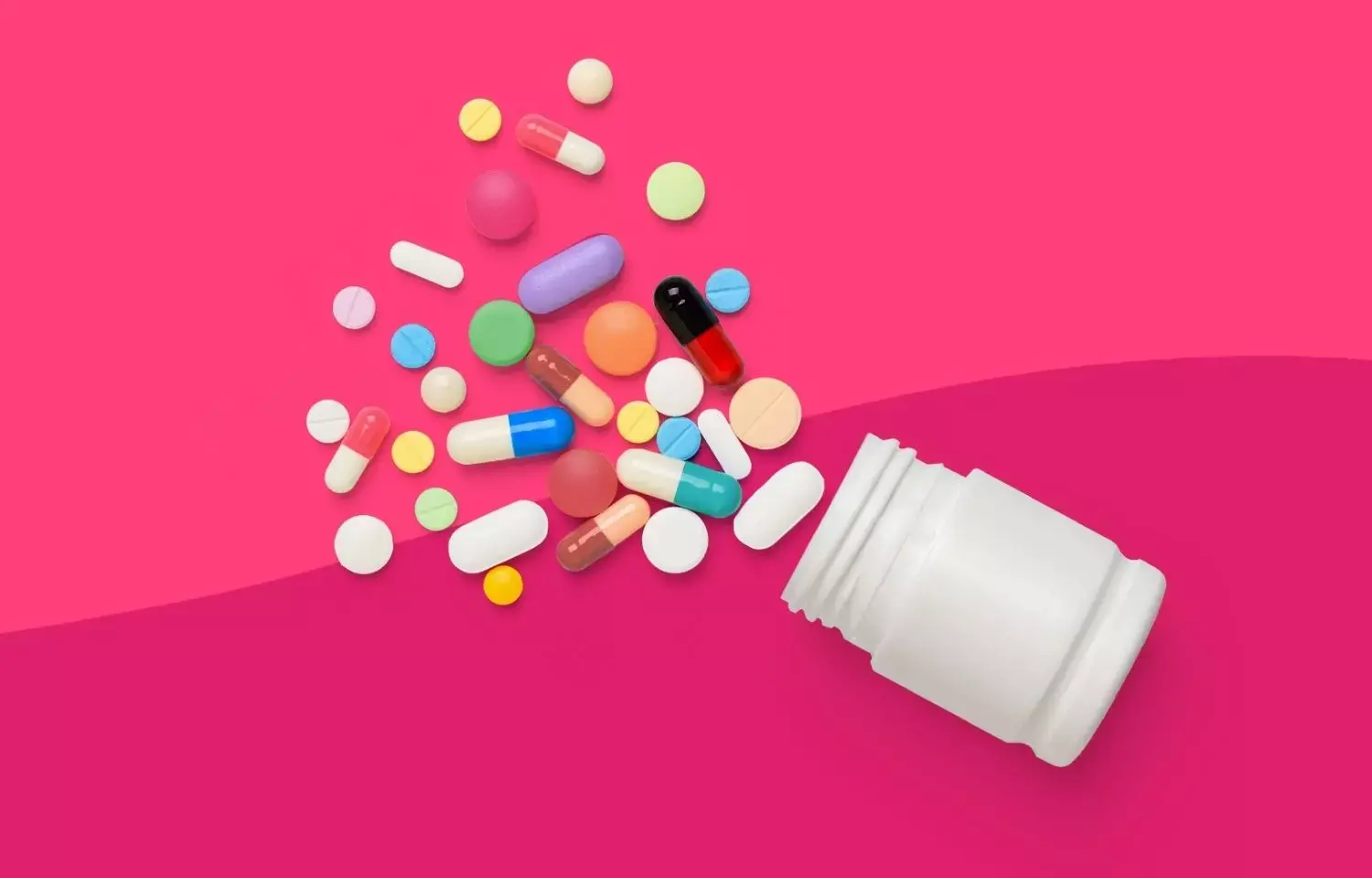- Home
- Medical news & Guidelines
- Anesthesiology
- Cardiology and CTVS
- Critical Care
- Dentistry
- Dermatology
- Diabetes and Endocrinology
- ENT
- Gastroenterology
- Medicine
- Nephrology
- Neurology
- Obstretics-Gynaecology
- Oncology
- Ophthalmology
- Orthopaedics
- Pediatrics-Neonatology
- Psychiatry
- Pulmonology
- Radiology
- Surgery
- Urology
- Laboratory Medicine
- Diet
- Nursing
- Paramedical
- Physiotherapy
- Health news
- Fact Check
- Bone Health Fact Check
- Brain Health Fact Check
- Cancer Related Fact Check
- Child Care Fact Check
- Dental and oral health fact check
- Diabetes and metabolic health fact check
- Diet and Nutrition Fact Check
- Eye and ENT Care Fact Check
- Fitness fact check
- Gut health fact check
- Heart health fact check
- Kidney health fact check
- Medical education fact check
- Men's health fact check
- Respiratory fact check
- Skin and hair care fact check
- Vaccine and Immunization fact check
- Women's health fact check
- AYUSH
- State News
- Andaman and Nicobar Islands
- Andhra Pradesh
- Arunachal Pradesh
- Assam
- Bihar
- Chandigarh
- Chattisgarh
- Dadra and Nagar Haveli
- Daman and Diu
- Delhi
- Goa
- Gujarat
- Haryana
- Himachal Pradesh
- Jammu & Kashmir
- Jharkhand
- Karnataka
- Kerala
- Ladakh
- Lakshadweep
- Madhya Pradesh
- Maharashtra
- Manipur
- Meghalaya
- Mizoram
- Nagaland
- Odisha
- Puducherry
- Punjab
- Rajasthan
- Sikkim
- Tamil Nadu
- Telangana
- Tripura
- Uttar Pradesh
- Uttrakhand
- West Bengal
- Medical Education
- Industry
DMARDs may reduce efficacy of COVID-19 vaccine in rheumatoid arthritis patients

UK: Rheumatoid arthritis (RA) patients on disease-modifying antirheumatic drugs (DMARDs) have a reduced response to the SARS-CoV-2 vaccination, a recent study has stated. The responses improved with second and third disease, 10% of patients still remained seronegative. The study appears in the BMJ journal RMD Open.
The study results suggest that vaccine responses are reduced but can be enhanced by sufficient vaccine/virus exposure, Benazir Saleem, Rheumatology, Leeds Teaching Hospitals NHS Trust, Chapel Allerton Hospital, Leeds, UK, and colleagues wrote in their study.
Treatment with DMARDs has been reported to be associated with variably reduced antibody and T cell responses to SARS-CoV-2 vaccination; however; there is not much knowledge of the impact of individual drugs, specifically in pateitns with rheumatoid arthritis. Also, data on the immune response of RA patients, either exposed to SARS-CoV-2 or naïve for infection, treated with DMARDs are also limited.
To fill the knowledge gap, Dr. Saleem and the team aimed to assess antibody and T cell responses to SARS-CoV-2 vaccination in patients with rheumatoid arthritis on disease-modifying antirheumatic drugs in a prospective study.
The study recruited 100 patients with RA on a variety of DMARDs for antibody and T cell analysis, pre-vaccination and 4 weeks post-vaccination. Sera IgG binding to ≥1 antigen was defined positive antibody response. Those that remained seronegative after first vaccination were retested 4 weeks after second vaccination; and if still seronegative after vaccination three.
An ELISpot count of ≥7 interferon (IFN)γ-positive cells when exposed to spike antigens determined a T cell response. Luminex multiplex assay IFN score was used to determine Type I IFN activity.
The study led to the following findings:
- After vaccine one, in patients without prior SARS-CoV-2 exposure, 37/83 (45%) developed vaccine-specific antibody responses, 44/83 (53%) vaccine-specific T cell responses and 64/83 (77%) developed either antibody or T cell responses.
- Reduced seroconversion was seen with abatacept, rituximab (RTX) and those on concomitant methotrexate (MTX) compared to 100% for healthy controls.
- Better seroconversion occurred with anti-tumour necrosis factor (TNF) versus RTX and with age ≤50. Pre-vaccine SARS-CoV-2 exposure was associated with higher quantitative seroconversion (≥3 antibodies).
- In the subgroup of non-seroconverters, a second vaccination produced seroconversion in 54% (19/35), and after a third in 20% (2/10).
- IFN score analysis showed no change post-vaccine.
In RA patients treated with abatacept, rituximab (<6 months from infusion) and those on concomitant MTX, the lowest seroconversion rates were observed. And regardless of DMARD therapy, the strongest antibody responses were seen in patients with evidence of previous SARS-CoV-2 infection. Also, T cell responded were not affected much by individual drugs, apart from a potential effect of corticosteroids.
"These data suggest that vaccine responses are reduced but can be improved by sufficient vaccine /virus exposure," the authors wrote. "The data support the use of a third dose of the vaccination with cessation of specific drugs to optimise response."
To conclude, RA patients on DMARDs have reduced vaccine responses, particularly on certain DMARDs, with improvement on subsequent vaccinations but with approximately 10% still seronegative after three doses.
Reference:
Saleem B, Ross RL, Bissell L, et alEffectiveness of SARS-CoV-2 vaccination in patients with rheumatoid arthritis (RA) on DMARDs: as determined by antibody and T cell responsesRMD Open 2022;8:e002050. doi: 10.1136/rmdopen-2021-002050
Dr Kamal Kant Kohli-MBBS, DTCD- a chest specialist with more than 30 years of practice and a flair for writing clinical articles, Dr Kamal Kant Kohli joined Medical Dialogues as a Chief Editor of Medical News. Besides writing articles, as an editor, he proofreads and verifies all the medical content published on Medical Dialogues including those coming from journals, studies,medical conferences,guidelines etc. Email: drkohli@medicaldialogues.in. Contact no. 011-43720751


